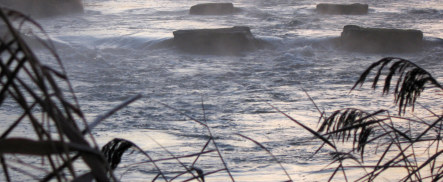Police and the prosecutors‘ office in Bad Oeynhausen in North Rhine-Westphalia reported on Friday that the infant girl’s cause of death was still not known, but that further tests would be done.
The body was found by a fisherman along the bank of the river and investigators believe the child was born between Monday and Thursday of last week. It is thought that she was thrown into the river in the town of Rinteln, Vlotho, Bad Oeynhausen or Porta Westfalica.
Thus far, investigators have no solid leads as to the identity of the mother. Police are looking for people who might know of a woman who was recently pregnant but who now does not have a newborn.
Germany has been plagued with a spate of gruesome infanticide cases in the last few years which have shocked the country. One woman who killed nine of her babies was sentenced to 15 years in prison in early April.
In May, a 44-year-old woman was arrested when her family found three dead babies in her freezer near Bonn.



 Please whitelist us to continue reading.
Please whitelist us to continue reading.